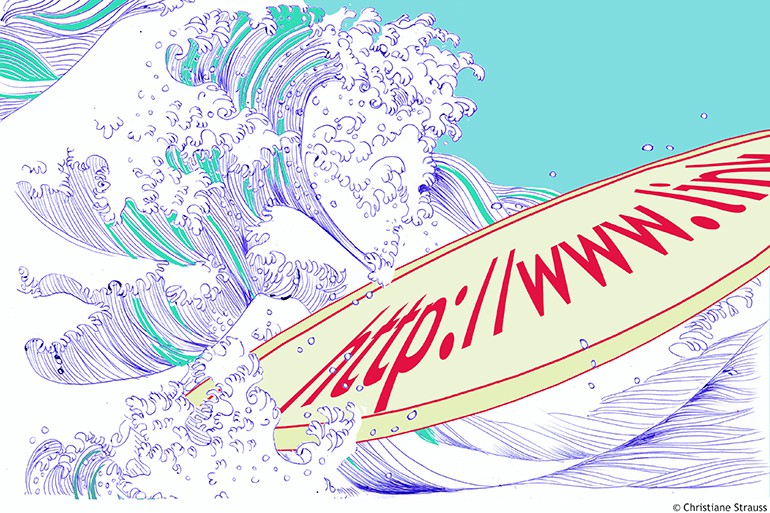Roboterjournalismus
Can the Computers at Narrative Science Replace Paid Writers?
Das Magazin „The Atlantic“ war bei den Gründern von Narrative Science – der Firma, die Journalisten teilweise durch Roboter ersetzen will. In der statistik- und floskelgetriebenen Sport- und Börsenberichterstattung funktioniert das schon erstaunlich gut. Algorithmen müssen Journalisten allerdings nicht unbedingt fürchten, sie können sich auch mit ihnen anfreunden. Algorithmen können helfen, den Scoop in der Flut belangloser Polit-PR-Floskeln zu finden, schreibt das Magazin:
Look no farther than Wikileaks‘ imposing data dumps to see this illustrated. The true significance of these revelations cannot be measured because no one has the time or resources to study them completely. In theory, Narrative Science could change that, working like a team of cheap interns to scour the dross, find the gems, and deliver insight. With bales and bales of mind-numbing government and corporate documents to sort through, Narrative Science could eventually help writers find the needle in the haystack.
Das nennt man dann allerdings Datenjournalismus.
The newsonomics of small things
Es kommt nicht oft vor, dass die US-Medienszene auf der Suche nach Innovationen zu ihren deutschsprachigen Pendants schaut, aber US-Medienanalyst Ken Doctor tut dies innerhalb kurzer Zeit schon zum zweiten Mal (hier ist das erste Mal). Meinolf Ellers, Geschäftsführer der dpa-Digitaltochter infocom, wird von Doctor ausgiebig in dessen Kolumne „Newsonomics“ zitiert. Ellers referierte kürzlich bei der Moskau-Konferenz von Minds International, einem internationales Kooperationsprojekt von Nachrichtenagenturen, über die Verlage noch ungewohnte Ökonomie der kleinen Gewinnspannen. (Auf gut Deutsch: Kleinvieh macht auch Mist.) Ellers – für Doctor „one of the best forward thinkers in the news industry“ – glaubt, dass Verlage zwei Strategien aus anderen Industrien beherzigen sollten:
- Das Freemium-Konzept aus der Gaming-Industrie: Inhalte an die breite Masse verschenken, um daraus zahlende Kunden für kostenpflichtige Premium-Produkte zu rekrutieren.
- Das Entbündelungsprinzip aus der Musikindustrie. Die eine Zeitung (CD) für alle wird und mehr ersetzt durch framentierte und individuelle Einzelllösungen.
How We Will Read: Clay Shirky
Netzvordenker Clay Shirky hat dem Blog „findings“ ein brilliantes Interview zur Zukunft der Lesekultur und der Verlagindusrie gegeben. Ein Auszug:
How is publishing changing?
Publishing is not evolving. Publishing is going away. Because the word „publishing“ means a cadre of professionals who are taking on the incredible difficulty and complexity and expense of making something public. That’s not a job anymore. That’s a button. There’s a button that says „publish,“ and when you press it, it’s done.
Vom Modebegriff „social reading“ hält Shirky übrigens wenig:
The social piece of reading is a kind of penumbra. It’s something that forms around the text and after the fact. The feature of „highlight this passage and immediately see how many other people have highlighted it“? I mean, ZOMG, no. I want my own thoughts rendered as the most recent entry in the constant, long-running popularity contest that is the Internet – in real-time. Pick it up and do anything you like with it. Tell me later who else liked it. Show them to me, introduce them to me, whatever – not right now. Right now I’m reading.
63 Minutes With Alan Rusbridger
Steve Fishman von „New York Magazine“ hat mit „Guardian“-Chefredakteur Alan Rusbridger bei dessen Antrittsbesuch in der neuen New Yorker Redaktion der US-Ausgabe gesprochen und war beeindruckt, wie Europas radikal-innovativster Chefredakteur gleichwohl von einer inneren Ruhe geleitet wird: „Rusbridger, 58, seems less a commanding newsroom boss than a grown-up Harry Potter: foppish hair, schoolboy smile, and, until recently, round wire-frame glasses (which he swapped for a dark rectangular pair). And unexcitable—’Zen,‘ as one of his journalists put it to me.“
Collab/Space 2012: Building Trust, Tools and Relationships for Collaborating
Megan Walsh hat für „Mediashift“ die wichtigsten Erkenntnisse der ersten gemeinsam vom Investigative Reporting Program (IRP) der UC Berkeley und „PBS Mediashift“ veranstalteten Konferenz Collab Space 2012 aufgeschrieben. Es ging um Tools wie Storify, Sparkwise oder ScribbleLive, aber auch um veränderte Einstellungen im investigativen Journalismus. Lowell Bergman (ja, genau der). „Before the age of the Internet, collaboration was a terminable offense“, wird Bergman von Walsh zitiert. „But the benefits of collaboration – from gaining additional resources to cover a story, to reaching a wider audience – have come to outweigh individual egos, something that was evident as attendees openly discussed challenges and solutions over the course of the day.“


